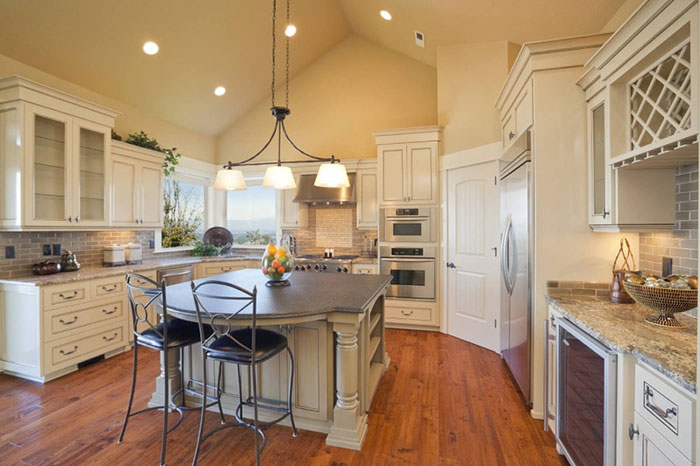5 Benefits of Changing Your HVAC Air Filter

Heating, ventilation, and air conditioning (HVAC) systems are vital in maintaining a comfortable environment in residential and commercial spaces. However, they require proper maintenance to function effectively and exhaust their projected shelf life.
Dust, debris, and grime accumulation is the primary reason most HVAC systems incur damage and break down way before their estimated shelf life lapses. Consequently, the US Department of Energy (DOE) recommends changing HVAC system filters every one to three months as part of the system’s inspection and maintenance process.
Below are the top reasons why the DOE recommends changing HVAC filters regularly.
- It Enhances Airflow for Energy Efficiency
HVAC systems’ heating and cooling functions rely on indoor airflow. Steady air flow helps lower the air temperature difference within a room faster, so the air conditioner functions efficiently to maintain desirable temperatures.
However, indoor air carries particulates that get stuck on HVAC air filters as the air circulates through the unit during purification. Such particulates cause grime buildup that blocks the airflow pathway, forcing your AC to work harder and use more energy.
According to one study, HVAC units account for almost half of energy consumption in residential buildings. Although magnetic vent covers can help enhance an HVAC system’s energy efficiency by blocking airflow into unused rooms, clogged vents in the usable areas still cause the system to work on overdrive. Therefore, your energy bill remains high.
However, replacing air filters before they become too clogged will improve air circulation in your indoor space. Enhanced air circulation means your HVAC system delivers optimum energy-efficient performance.
- It Enhances the Air Quality Circulating in Your Indoor Space
Indoor air quality (IAQ) refers to the quality of air circulating within and outside a building. According to the US Environmental Protection Agency (EPA), ventilation using an HVAC system is one of the three primary ways you can improve IAQ.
One EPA report shows that HVAC systems do not draw fresh air into your house; instead, fresh air flows in when you open doors and windows. However, the fresh air isn’t contaminant-free, depending on your location and an HVAC system’s primary function is to purify the air via its ventilation function.
Outdoor air may contain particulate pollutants or a mixture of solids and liquid droplets suspended in the air. Such include dust, soot, smoke, pollen, mold spores, and organic and inorganic chemicals. Moreover, indoor activities like keeping pets, cooking, vacuuming, painting, and smoking produce particulate pollutants that lower indoor air quality.
Particulate pollutants can float in the air for weeks to months, making cleaning challenging and causing health issues like sick building syndrome (SBS). SBS is a collection of symptoms that building occupants experience, not necessarily tied to disease but due to time spent inside the building.
Poor ventilation is among the primary SBS causes, meaning HVAC systems protect building occupants from SBS symptoms and pollutant-triggered allergies. HVAC systems feature removable filters that trap the particulate pollutants in indoor air, improving IAQ.
However, HVAC filters become clogged when they stay too long without being cleaned. The particulate pollutants on the filters form grime that blocks airflow, preventing the HVAC system from purifying air effectively. Moreover, a clogged filter forces the HVAC system to work harder, damaging vital components that are expensive to replace; you may have to replace the entire system altogether.
However, as the DOE recommends, changing your air filter will improve your IAQ significantly, making your home safe and healthy. Therefore, replace your air filters more frequently if you own pets or conduct more indoor activities that are likely to release high particulate pollutant levels as byproducts.
- Low Maintenance Costs and a Longer Shelf Life
Replacing your HVAC filter every 90 days is standard for proper HVAC system maintenance. Clogged HVAC system air filters cause the unit to overexert itself, operating beyond the optimum level specified by the manufacturer’s specifications. Consequently, some components may incur damage as a result.
Moreover, the pollutant particulates trapped in the air filter may become pulled into the central HVAC unit and damage delicate components. Consequently, you will have to spend plenty of money on frequent repairs or replace the entire HVAC system; HVAC systems are expensive, costing an average of $7000.
On the other hand, HVAC air filters cost $80-$100, depending on the material and brand. Besides the minimal cost of replacing the filter, the only other cost you will incur is the HVAC system inspection fee; you should have your system inspected by a certified professional at least twice a year.
- Enhanced Temperature Regulation
As stated above, constant air flow regulates a room’s temperature difference, helping maintain a desirable temperature. However, clogged filters limit airflow, so it takes your HVAC system longer to achieve the desired temperature.
Consequently, your thermostat’s functionality becomes hampered, and you may need to crank it up or down to enjoy a comfortable temperature. Cracking your thermostat means the HVAC system is working harder and increasing your energy bill.
- Replacing Clogged Filters is Good for the Environment
HVAC systems typically run on some form of fossil energy, like electricity, and one report shows that cooling systems account for 10% of global greenhouse gas emissions. Failing to replace damaged air filters increases your energy consumption, which raises the greenhouse gas emission levels from energy generation. However, maintaining your HVAC system allows you to play your part in preserving the climate.
Conclusion
To replace or not to replace HVAC system air filters seems like a minor decision, but it has a ripple effect. It could either lower your energy bills significantly or cost you a new HVAC system. Therefore, make the smart choice today.





